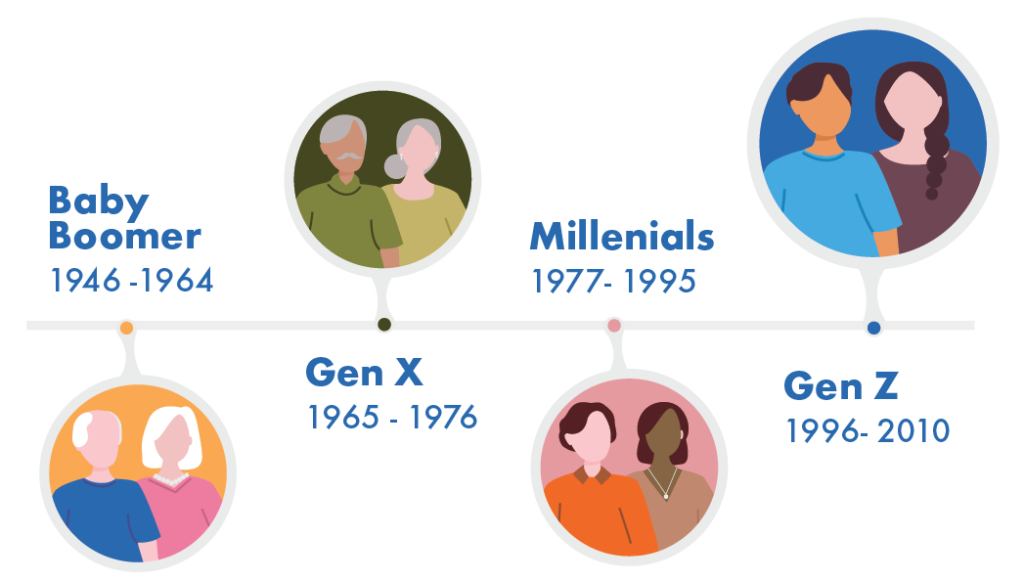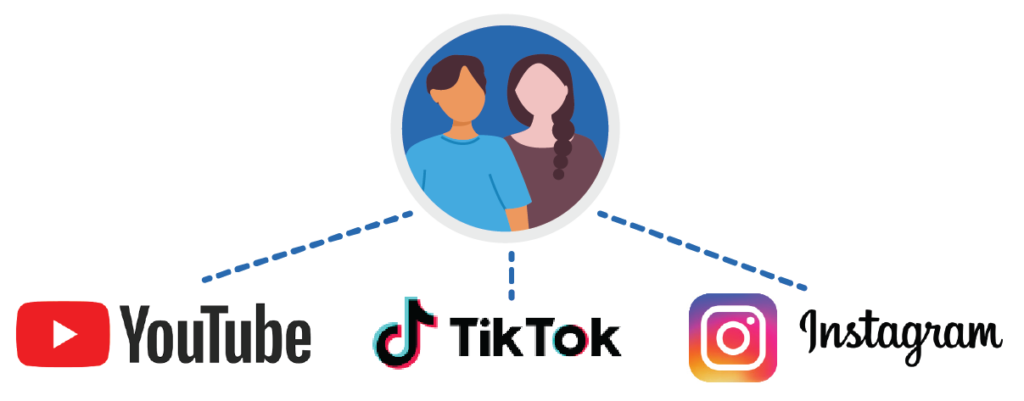
Roughly two thirds of all spend on small businesses is from Generation Z and Millennials. Gen Z will continue to become a major force as a consumer cohort and brands must learn how to communicate and market their products in an impactful way to reach the first digital native generation of consumers.

Who is Gen Z?
Gen Zers are those born between 1996 and 2012. They’re the first generation to grow up with smart phones and to be fully immersed in social media and have a whopping spending power of over $360 billion, accounting for 40% of global consumers.
What are their buying habits?
It may surprise you to know that Gen Z are generally not impulsive buyers. Gen Z has grown up during some of the most economically uncertain conditions – the Global Financial Crisis, COVID, inflation and another potential recession. This has likely shaped their perception of money – even though around 50% of Gen Zers shop online monthly, the same percentage only make a purchase when they need something, and over 33% look for good deals, choosing to buy when there are sales.
Gen Z are a diverse crowd with strong opinions on various social issues. They want to buy from brands that showcase their dedication and involvement in improving society. Equality, racial justice, recycling and protecting the environment are all issues Gen Z will factor in when buying from a brand. And they can easily spot if a brand is not genuine, calling out fake activism and virtue signaling.
What social media do they use?

Gen Z are used to being connected to the internet from an early age. They spend between 1-5 hours on social media per day, not only to communicate and stay up to date with the latest news; they also use it to do research on products or brands and make purchase decisions. The downside of this is that their attention span is also shorter, meaning that your brand has a mere few seconds to make an impression. You must find extra creative ways to use that small window of time.
YouTube, TikTok, and Instagram are the most popular social media platforms among Gen Z. It might be because they dabble in content creating themselves or because they consume twice as much video content as Millennials, and this is where they find it. Because of this, your business may want to investigate YouTube ads or organic YouTube content to target Gen Z consumers.
The best way to reach Gen Z is to have a presence where they are interacting and engaging. Investing time, money, and effort into social media advertising should be a top priority for brands in 2022 and beyond.
Marketing to Gen Z
Being online all the time, Gen Z are easily accessible, but that doesn’t mean any type of advertisement easily sways them. Your business needs to put genuine effort into understanding their preferences.
What Works
User Generated Content (UGC)
User-generated content, including that of influencers. Gen Zers are more likely to form authentic connections with those they may already follow or know.
Visually Captivating Ads
Creative and visually captivating ads that are true to a brand’s core values will resonate with a Gen Z audience.
Combination of Video and Static Ads
Both advertising channels can work wonders if used right. Gen Z might consume more video content on social media, but they don’t necessarily prefer video ads to static ones.
Transparency
If brands want Gen Z to trust them, they have to ease up on the use of personal data, or at the very least, commit to being completely transparent about it.
What to Avoid
Woke Advertising
Stiff branded content and “wokevertising” have zero chances of winning over Gen Z. They want brands to speak their language and will reject any performative action. Being the first digital native generation of consumers, they’ve learned how to spot inauthenticity and will not hesitate to dismiss whatever comes across as fake, irrelevant, misleading, or disingenuous.
Clickbait Ads
Gen Zers dislike ‘clickbaity’ ads or ads that are too long because they lack the patience to watch them. Disruptive ads are just as bad an idea and should be replaced by ads with a native feel.
Personal Data Ads
Gen Z does not appreciate ads that rely on personal data. Let’s be real, most of us don’t, but the digital native consumers care more about their privacy than other generations.
Key Takeaways
Trust, trust, trust
Gen Z can recognize inauthenticity when they see it. If brands want to appeal to Gen Z, they need to start building a relationship based on trust.
Inclusivity and relatability
To show trust, brands must speak Gen Z’s language and understand its values. It’s time to focus on more inclusive advertising and work with people (whether they are influencers from outside or employees of the company) that are part of Gen Z.
In-person connections
As much as Gen Z knows about technology and is immersed in the online world, they still value in-person communication. Brands should focus on providing hybrid experiences through customer-first cross-channel marketing.
A good deal is powerful
Gen Z knows how to search for a great discount, so brands need to tailor their sale strategies accordingly.
Gen Z is the first digitally native generation that spends most of their time online and has a stable income. But they also care about society and are willing to support brands whose values align with their own. Brands who understand what makes them unique from millennials and adjust their marketing strategies accordingly are those who will succeed in the long run.
We offer a comprehensive range of digital marketing services that will get you found by your target audience. Contact our team of digital marketing experts today.



